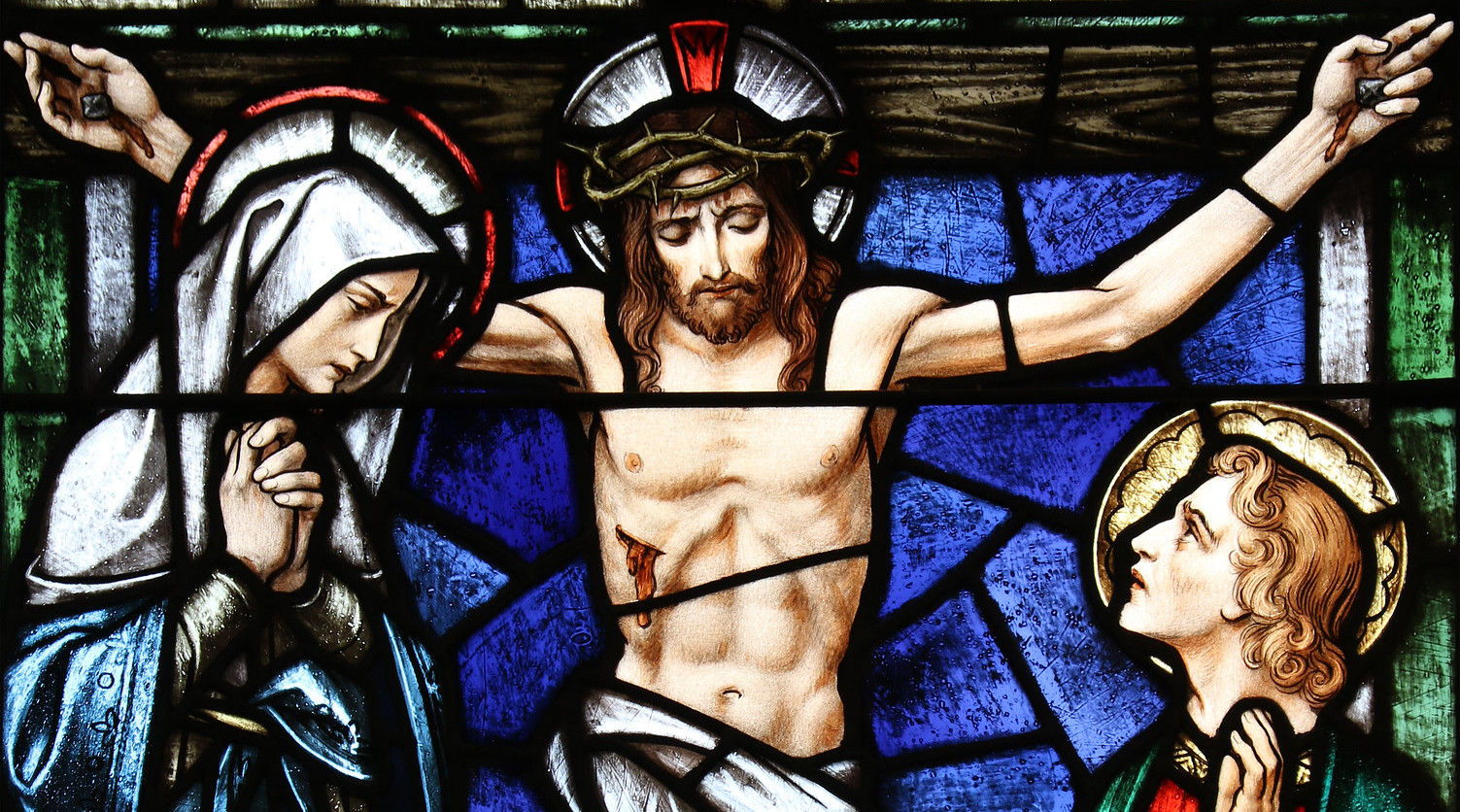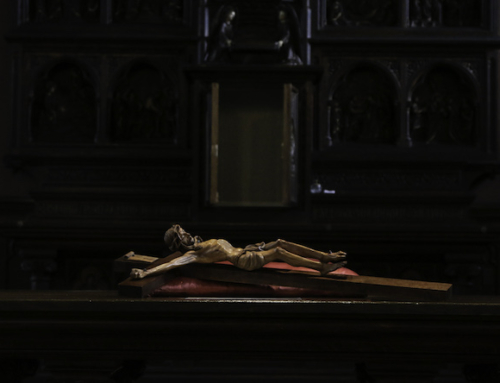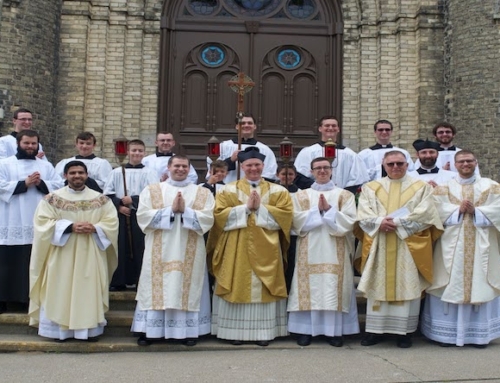They proclaimed:
“Blessed is the king who comes in the name of the Lord.
Peace in heaven and glory in the highest.”Some of the Pharisees in the crowd said to him, “Teacher, rebuke your disciples.” He said in reply, “I tell you, if they keep silent, the stones will cry out!” (Luke 19:38–40)
This Sunday, the liturgy moves from rejoicing and praising the Lord to silence and sorrow. After we gather with our palms, enter the church, and read about Christ’s triumphant entry into Jerusalem, we then read about his Passion and death before we leave the church in silence and with downcast hearts.
This movement is recognized by Ecclesiastes when it says that there is “a time to keep silence, and a time to speak” (Eccl 3:7). Much like the crowds in the Gospel, we can tend to praise Christ as Lord in good times when we are surrounded by like-minded men and women, and we see Christ as triumphant. It is more difficult, though, to be like our Blessed Mother, Saint John, or Saint Mary Magdalene, standing silently by when only the eyes of faith can see Christ still reigning triumphant from his throne on the cross.
The crowds rejoiced at Jesus’ triumphant entry into Jerusalem but grew silent just as the Pharisees wanted, and abandoned him at the cross. But Christ had warned that if they kept silent, the stones would not be.
After Christ gave up his spirit, “the earth shook, and the rocks were split. The tombs also were opened . . .” (Matt 27:52). The very stones that Christ spoke of when entering Jerusalem praised him when the crowds did not. However, these were not the only stones that praised God. The stony heart of the centurion broke open and became flesh when he glorified God saying, “Truly this man was the Son of God!” (Matt 27:54)
Lent is the time for silence, prayer, and fasting, done in a way that our Heavenly Father alone can hear and see. It is through this silence that stones continue to cry out. We may not see rocks split open or mountains crumble, but we can see something even greater: our own hearts split open.
The centurion’s heart was split open during that silence that followed the crucifixion when he realized that he had helped crucify the Son of God. When he looked at the cross, he saw not only the sin and hatred of those who crucified him, but also the innocence and love that Christ had in allowing this to happen. When we are silent, pray, and fast, we are given the same opportunity. We can examine our lives and see how we too have placed Christ on the cross through our own sins. We are also able to reflect not only on our guilt, but on the the love that Christ has for us.
We may not be able to approach Jesus on the cross as the centurion did, but we can approach Christ waiting for us in the confessional. Christ died so that we would be saved from our sins when we confess them and open our hearts to receive his grace. Although the Church may appear silent in reality it is filled with the praise of the angels and the saints because “there will be more rejoicing in heaven over one sinner who repents than over ninety-nine righteous persons who do not need to repent” (Luke 15:7).
✠
Photo by Fr. Lawrence Lew, O.P. (used with permission)







